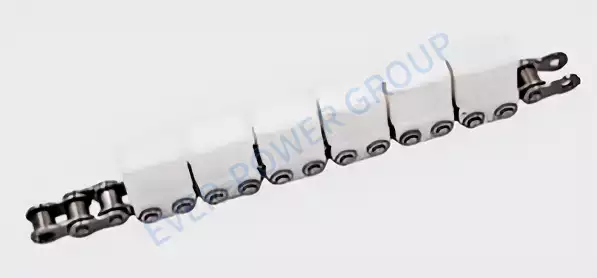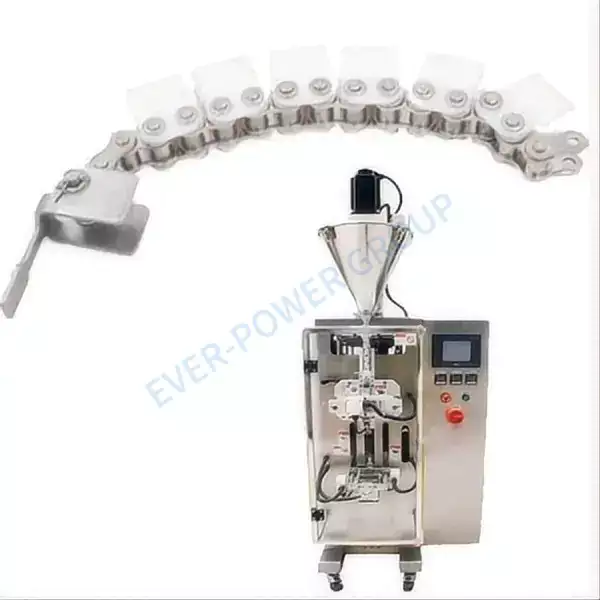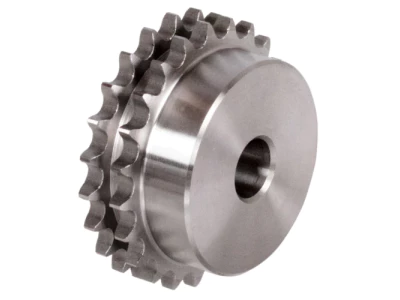Einführung
When it comes to choosing chains for packing machines, one important consideration is the material they are made of. Stainless steel and plastic are two commonly used options, each with their own set of advantages and disadvantages. In this article, we will explore the differences between stainless steel packing machine chains and plastic chains, and discuss their respective suitability for different applications.
Durability and Strength
Stainless steel chains are known for their exceptional durability and strength. The use of high-quality stainless steel alloys ensures that these chains can withstand heavy loads and resist wear and tear over time. This makes them an excellent choice for packing machines that operate under demanding conditions, such as those found in industrial settings.
On the other hand, plastic chains may not possess the same level of durability and strength as their stainless steel counterparts. While they are generally lightweight and corrosion-resistant, they may not be able to handle heavy loads or prolonged use without the risk of breakage. Plastic chains are better suited for light-duty applications in less demanding environments.
Chemical Resistance
One advantage of stainless steel chains is their high resistance to chemicals. They are able to withstand exposure to various substances, including acids, alkalis, and cleaning agents, without experiencing degradation or corrosion. This makes them particularly suitable for packing machines used in industries where contact with corrosive substances is common, such as the food processing or pharmaceutical industries.
Plastic chains, on the other hand, may not offer the same level of chemical resistance as stainless steel chains. While they can generally withstand exposure to mild chemicals, prolonged contact with harsh substances may cause them to deteriorate or become brittle. Therefore, it is important to consider the specific chemical environment in which the packing machine will be used when choosing between stainless steel and plastic chains.
Temperature Resistance
Stainless steel chains excel in their ability to withstand high temperatures. They can operate effectively in environments with elevated heat levels, making them suitable for packing machines that encounter heat during their operations, such as those used in baking or metalworking processes.
Plastic chains, on the other hand, have a lower temperature resistance compared to stainless steel chains. Exposing plastic chains to high temperatures can cause them to melt or deform, rendering them ineffective. Therefore, if the packing machine will be subjected to high temperatures, it is advisable to opt for stainless steel chains to ensure reliable and safe operation.
Maintenance and Hygiene
Maintenance and hygiene considerations are crucial in industries where cleanliness is of utmost importance, such as the pharmaceutical or medical sectors. Stainless steel chains are relatively easy to clean and maintain, making them suitable for applications that require frequent sanitation. They are also resistant to bacterial growth, minimizing the risk of contamination.
Plastic chains, on the other hand, may require more frequent cleaning and maintenance to ensure proper hygiene standards. They can be more susceptible to trapping particles or substances, which can lead to the proliferation of bacteria or other contaminants. Therefore, when hygiene is a top priority, stainless steel chains are often the preferred choice.
Conclusion
Choosing the appropriate chains for packing machines is crucial to ensure optimal performance and longevity. Stainless steel chains offer superior durability, strength, chemical resistance, temperature resistance, and hygiene properties compared to plastic chains. However, plastic chains may still be suitable for light-duty applications in less demanding environments. By understanding the differences between these two options, manufacturers can make informed decisions when selecting chains for their packing machines.


Sprockets for Sale
When it comes to choosing the right chain wheel, one important consideration is the material. Stainless steel packing machine chains and plastic chains are two common options. Let's compare them to help you make an informed decision.
Stainless steel packing machine chains offer several advantages. Firstly, they are highly durable and resistant to corrosion, making them suitable for applications in harsh environments. They are also known for their strength and ability to handle heavy loads. Additionally, stainless steel chains have excellent temperature resistance, allowing them to perform well in both high and low temperature conditions.
On the other hand, plastic chains have their own set of benefits. They are lightweight, which makes them ideal for applications where weight is a critical factor. Plastic chains are also known for their low noise, as they tend to produce less vibration compared to metal chains. Furthermore, plastic chains are often more cost-effective than stainless steel chains.
At our company, we offer a wide range of sprockets to cater to different needs. Whether you require stainless steel packing machine chains or plastic chains, we have you covered. Our sprockets are designed to ensure optimal performance and longevity.
Take a look at the image below to get a glimpse of our high-quality sprockets:

With our diverse selection of sprockets, you can find the perfect fit for your specific application. Contact us today to explore our range of sprockets and find the right solution for your needs.
Why Choose Our Stainless Steel Chains for Packing Machine?
When it comes to packing machines, the choice of chains is crucial for smooth operation and durability. At RP Techniek BV, we offer top-of-the-line stainless steel chains that outperform plastic chains in various aspects.
First and foremost, our stainless steel chains are renowned for their exceptional quality. Crafted from high-grade stainless steel, they are incredibly strong and resistant to corrosion, ensuring a long lifespan even in demanding industrial environments.
Furthermore, our chains boast superior performance. With their precise engineering and reliable construction, they provide smooth and reliable operation, minimizing downtime and maximizing productivity. The low maintenance requirements of our stainless steel chains make them a cost-effective choice in the long run.
As the authorized sales agent of Ever-power Group in the Netherlands, we guarantee that our stainless steel chains are sourced directly from a reputable manufacturer. This partnership gives us access to a wide range of stainless steel roller chains, allowing us to cater to diverse customer needs.
In addition to our stainless steel packing machine chains, we also offer a variety of other stainless steel chains for sale. Whether you require chains for conveyors, lifting equipment, or any other industrial applications, we have you covered.

Fragen und Antworten
Q: Which material is more durable, stainless steel or plastic, for packing machine chains?
A: Stainless steel chains are known for their exceptional durability and strength, making them a better choice for packing machines that operate under demanding conditions. Plastic chains may not possess the same level of durability and strength as stainless steel chains, and are better suited for light-duty applications in less demanding environments.
Q: Are stainless steel chains more resistant to chemicals than plastic chains?
A: Yes, stainless steel chains are generally more resistant to chemicals than plastic chains. They can withstand exposure to various substances, including acids, alkalis, and cleaning agents, without experiencing degradation or corrosion. Plastic chains, on the other hand, may not offer the same level of chemical resistance as stainless steel chains, and prolonged contact with harsh substances may cause them to deteriorate or become brittle.
Q: Which type of chain is better for applications that require frequent sanitation and hygiene standards?
A: Stainless steel chains are relatively easy to clean and maintain, making them suitable for applications that require frequent sanitation and hygiene standards. They are also resistant to bacterial growth, minimizing the risk of contamination. Plastic chains may require more frequent cleaning and maintenance to ensure proper hygiene standards, and can be more susceptible to trapping particles or substances, which can lead to the proliferation of bacteria or other contaminants.
Edited By Zqq.
